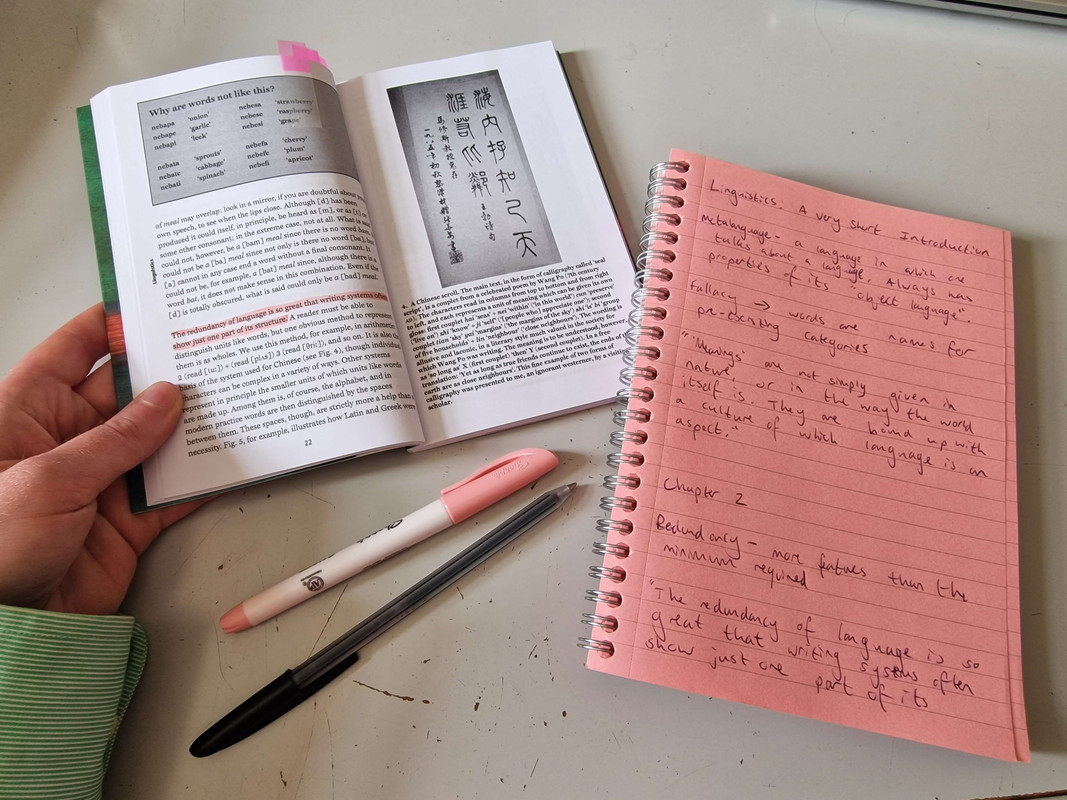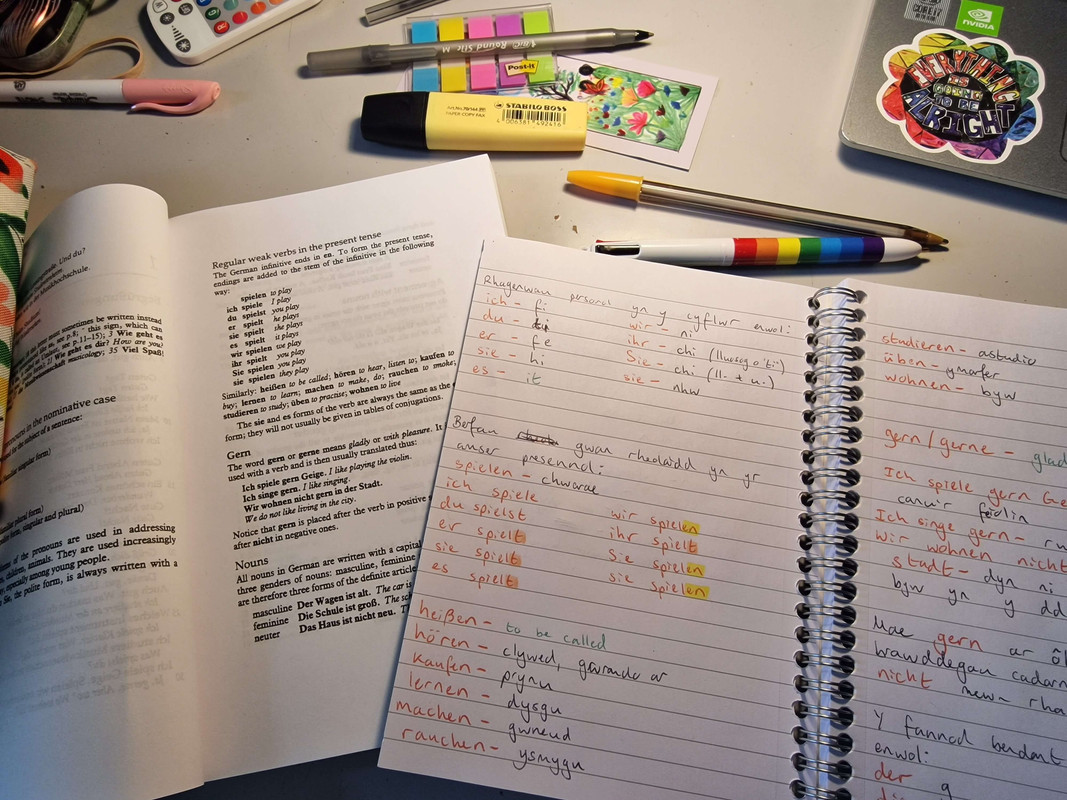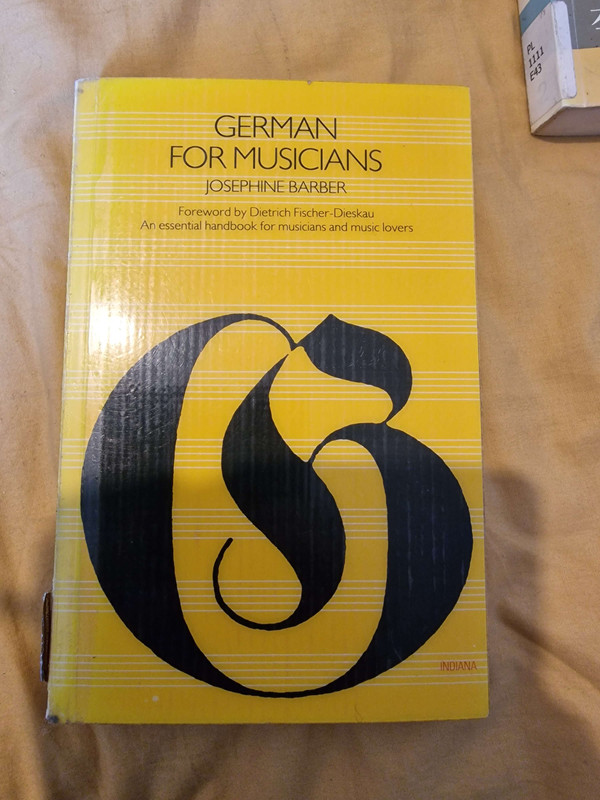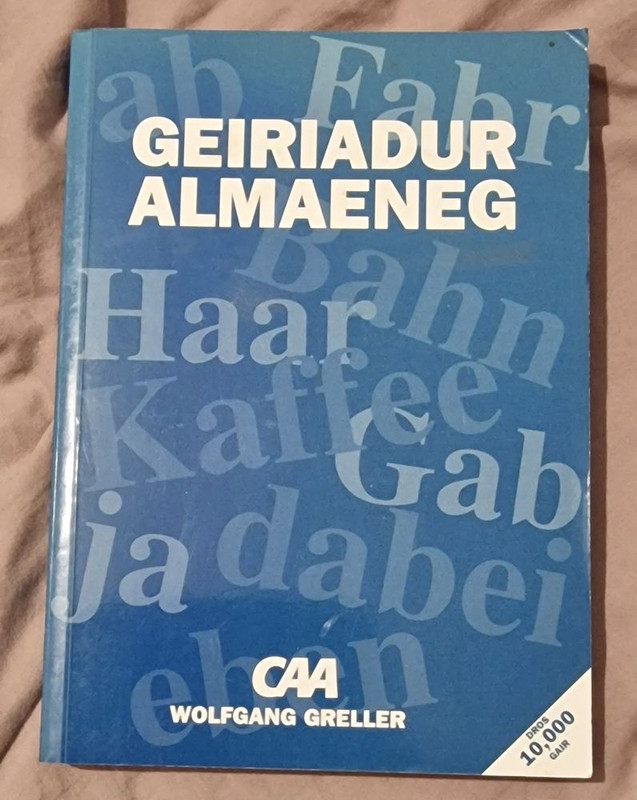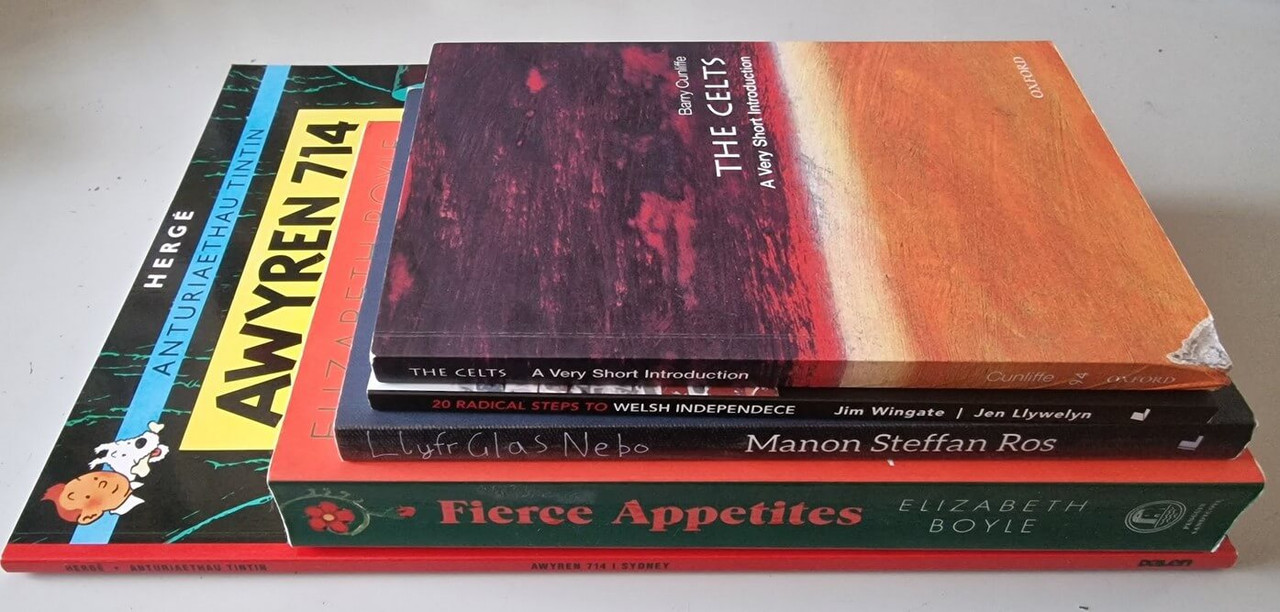Today's studying #3 and studying hours
Jun. 5th, 2025 11:04 pm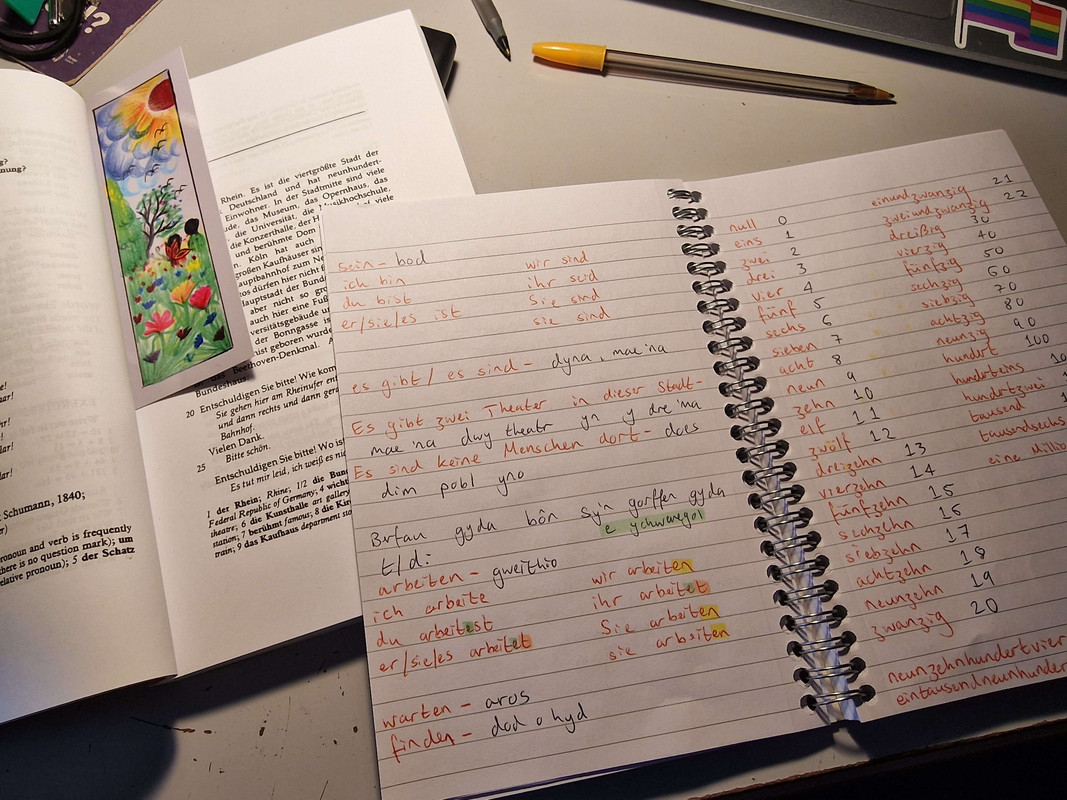
Today I finished chapter 2 of 'German for Musicians', and did the 'Plurals' section on LingoDeer. I now know: how to conjugate regular present-tense verbs for all pronouns, numbers up to 1 million, enough to read/answer questions about someone's background/their studies related to music, plurals, and some basic things about cases!
I read chapter 4 of 'Linguistics: A Very Short Introduction'. I'm planning to read the sociolinguistics book in the same series next, or maybe the languages one.
Also, I was looking at this table we were shown at university last year about time spent on learning Welsh:
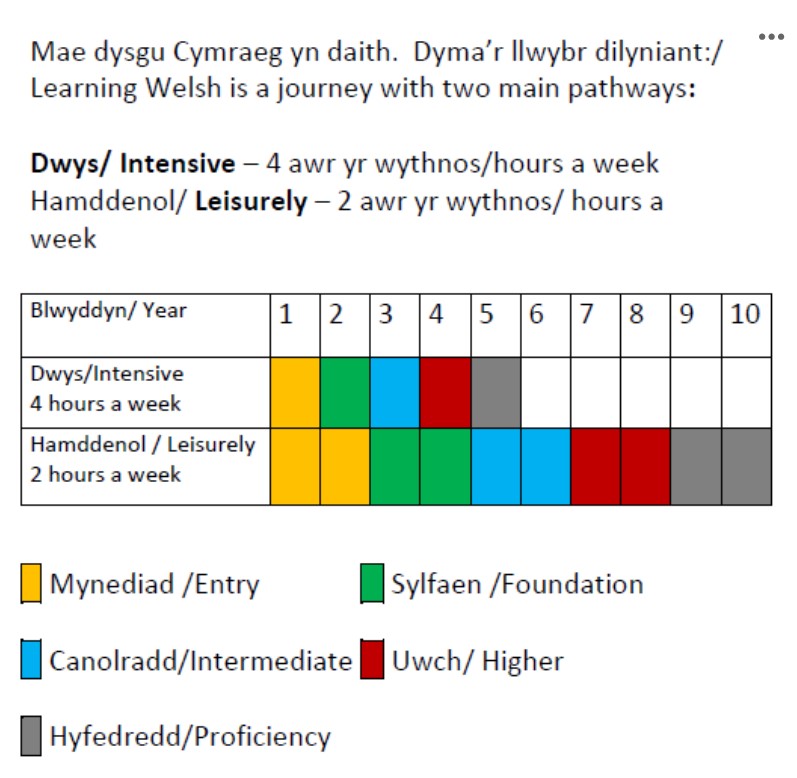
This chart uses Dysgu Cymraeg's naming of language levels:
Mynediad/Entry = A1
Sylfaen/Foundation = A2
Canolradd/Intermediate = B1
Uwch/Higher = B2
Hyfedredd/Proficiency = C1
The 'intensive' study category is 4 hours a week and will get you to 'proficiency' in 5 years, and the 'leisurely' category is 2 hours a week and will get you to 'proficiency' in 10 years. I've decided to sort the languages I'm learning into these categories, plus make up 2 of my own: 'casual' which is 1 hour a week, and 'whenever I have time'.
Intensive: Irish and German. I want both of these to improve a lot before I start back at university again.
Leisurely: Welsh. I would have put this in 'intensive' too but I don't want to risk burning myself out. I just want to keep using some Welsh over the summer since my family don't speak it. When university starts again, I'll probably put this one in intensive (since I'm going to count university classes towards the total time). I'll probably re-do the other languages and their categories once I'm back at university too.
Casual: Cornish and Scots. I'm having an hour-long Cornish lesson each week online, and I look at the Open University Scots course when I get the chance.
Whenever I have time: this category is basically just going to be for anything that takes my fancy that I want to look at, or revisit if it's a language I looked at a while ago. So Old Irish, maybe some Breton, Chinese, etc. I should probably have at least a little look at Old Irish since I'm planning on continuing with it in the next academic year.
